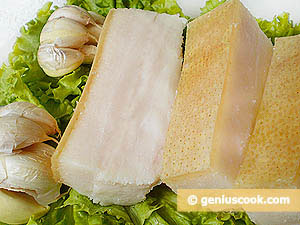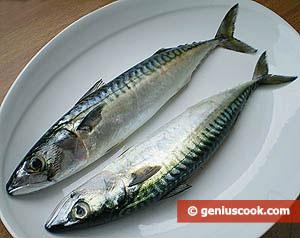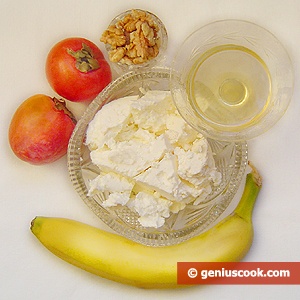Lard Is Healthy?
 The latest studies amazingly show that lard isn’t harmful, as it was thought, but healthy!
The latest studies amazingly show that lard isn’t harmful, as it was thought, but healthy!
The lard contains the arachidonic acid that relates to polyunsaturated fatty acids (Omega-6). Omega-6 is part of heart, brain and kidney tissues and essential for their proper functioning. The lard has anticancer effect as the most of carcinogens dissolve in fatty acids. As the arachidonic acid can improve metabolism and dissolve cholesterol, the lard helps remove toxins form our body and lowers blood cholesterol level.
To achieve named health benefits, it is best to eat lard with garlic. Both garlic and lard are a good source of selenium, and selenium is what we need to strengthen the immune system. The lard also contains saturated acids that are vital to our health.
Lard Health Benefits
- The lard is effective for the treatment of lung diseases.
- Bile-expelling properties of the lard make it a good remedy for liver disorders.
- The lard also prevents atherosclerosis.
- The lard does not accumulate radionuclides and parasitic worms can’t live in it.
- Even small amount of lard is very nourishing. So it can help you eat less and keep a slim figure. You can even find some lard-based diets out there.
How Ukrainians Eat Lard
The lard is a national Ukrainian food. Ukrainians eat the lard regularly, but they are not less healthy than people in other countries and they also don’t have nationwide obesity problem. As with other food, only rational consumption of lard is healthy.
- 100 g lard supplies: 640 kcal, 6%proteins, 67%fat.
- The lard contains vitamins A, E, the B vitamins, PP and selenium.
Note: Guideline amount of lard is about 100 g weekly.








